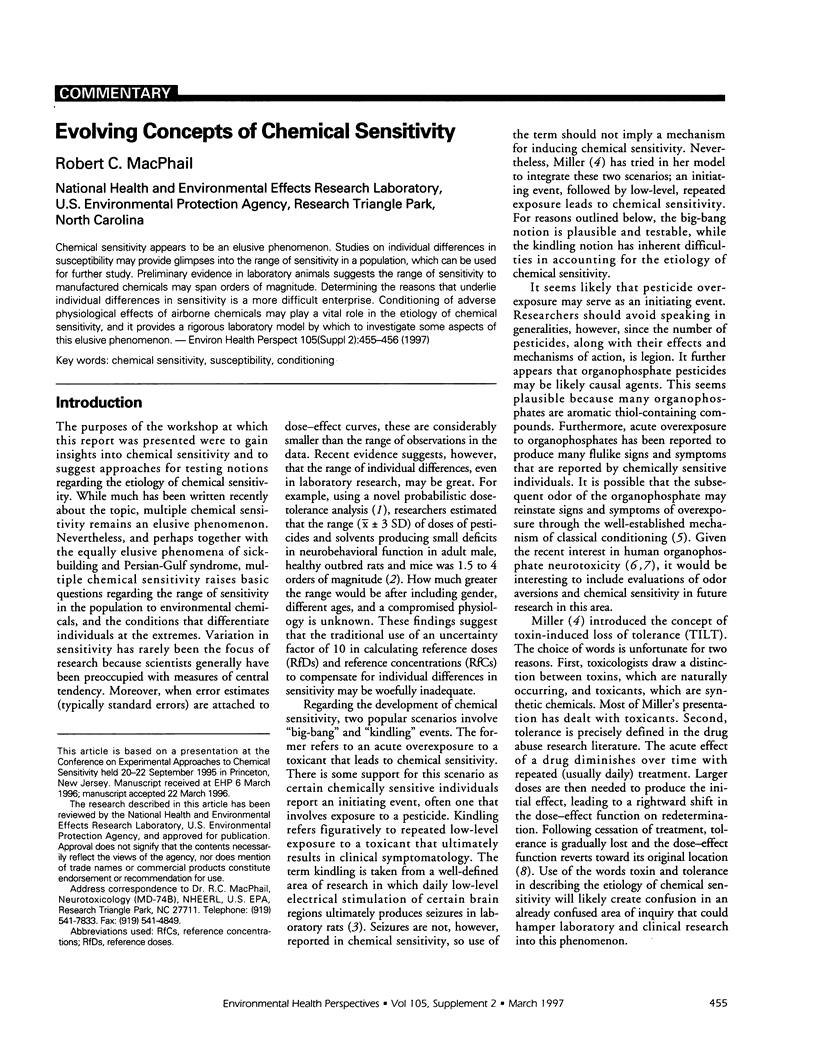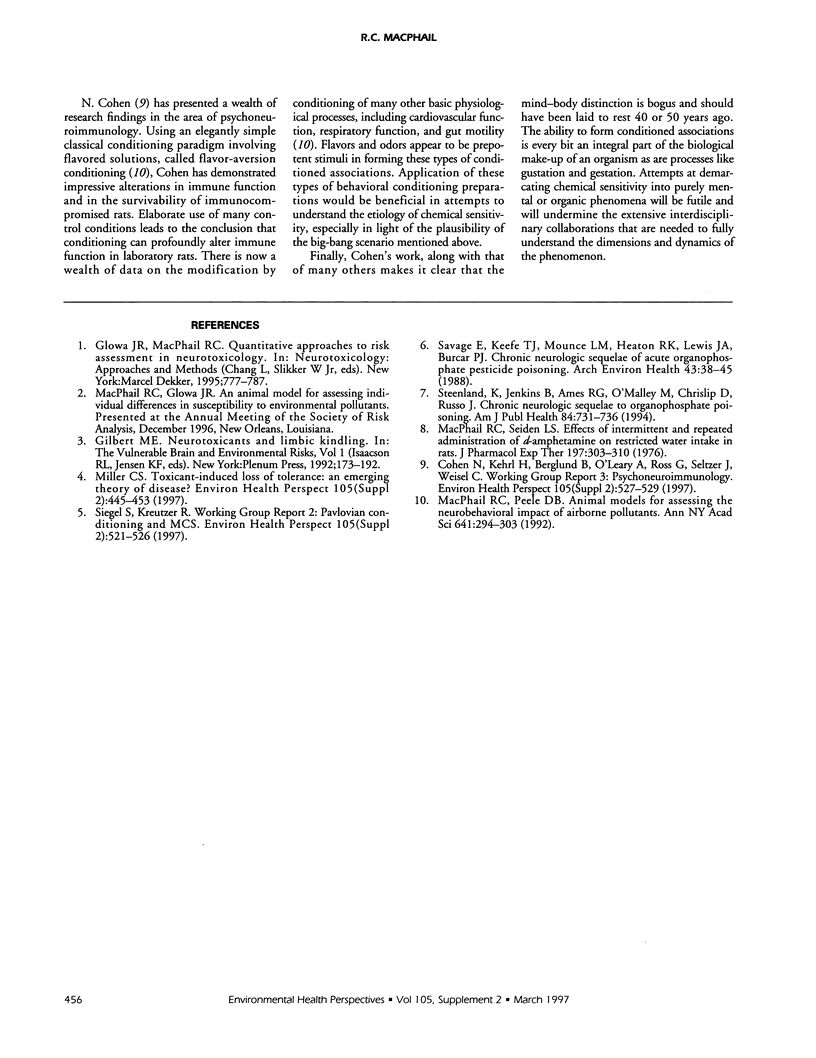Abstract
Chemical sensitivity appears to be an elusive phenomenon. Studies on individual differences in susceptibility may provide glimpses into the range of sensitivity in a population, which can be used for further study. Preliminary evidence in laboratory animals suggests the range of sensitivity to manufactured chemicals may span orders of magnitude. Determining the reasons that underlie individual differences in sensitivity is a more difficult enterprise. Conditioning of adverse physiological effects of airborne chemicals may play a vital role in the etiology of chemical sensitivity, and it provides a rigorous laboratory model by which to investigate some aspects of this elusive phenomenon.
Full text
PDF

Selected References
These references are in PubMed. This may not be the complete list of references from this article.
- Cohen N., Kehrl H., Berglund B., O'Leary A., Ross G., Seltzer J., Weisel C. Psychoneuroimmunology. Environ Health Perspect. 1997 Mar;105 (Suppl 2):527–529. doi: 10.1289/ehp.97105s2527. [DOI] [PMC free article] [PubMed] [Google Scholar]
- MacPhail R. C., Peele D. B. Animal models for assessing the neurobehavioral impact of airborne pollutants. Ann N Y Acad Sci. 1992 Apr 30;641:294–303. doi: 10.1111/j.1749-6632.1992.tb16550.x. [DOI] [PubMed] [Google Scholar]
- MacPhail R. C., Seiden L. S. Effects of intermittent and repeated administration of d-amphetamine on restricted water intake in rats. J Pharmacol Exp Ther. 1976 May;197(2):303–310. [PubMed] [Google Scholar]
- Miller C. S. Toxicant-induced loss of tolerance--an emerging theory of disease? Environ Health Perspect. 1997 Mar;105 (Suppl 2):445–453. doi: 10.1289/ehp.97105s2445. [DOI] [PMC free article] [PubMed] [Google Scholar]
- Savage E. P., Keefe T. J., Mounce L. M., Heaton R. K., Lewis J. A., Burcar P. J. Chronic neurological sequelae of acute organophosphate pesticide poisoning. Arch Environ Health. 1988 Jan-Feb;43(1):38–45. doi: 10.1080/00039896.1988.9934372. [DOI] [PubMed] [Google Scholar]
- Siegel S., Kreutzer R. Pavlovian conditioning and multiple chemical sensitivity. Environ Health Perspect. 1997 Mar;105 (Suppl 2):521–526. doi: 10.1289/ehp.97105s2521. [DOI] [PMC free article] [PubMed] [Google Scholar]
- Steenland K., Jenkins B., Ames R. G., O'Malley M., Chrislip D., Russo J. Chronic neurological sequelae to organophosphate pesticide poisoning. Am J Public Health. 1994 May;84(5):731–736. doi: 10.2105/ajph.84.5.731. [DOI] [PMC free article] [PubMed] [Google Scholar]


